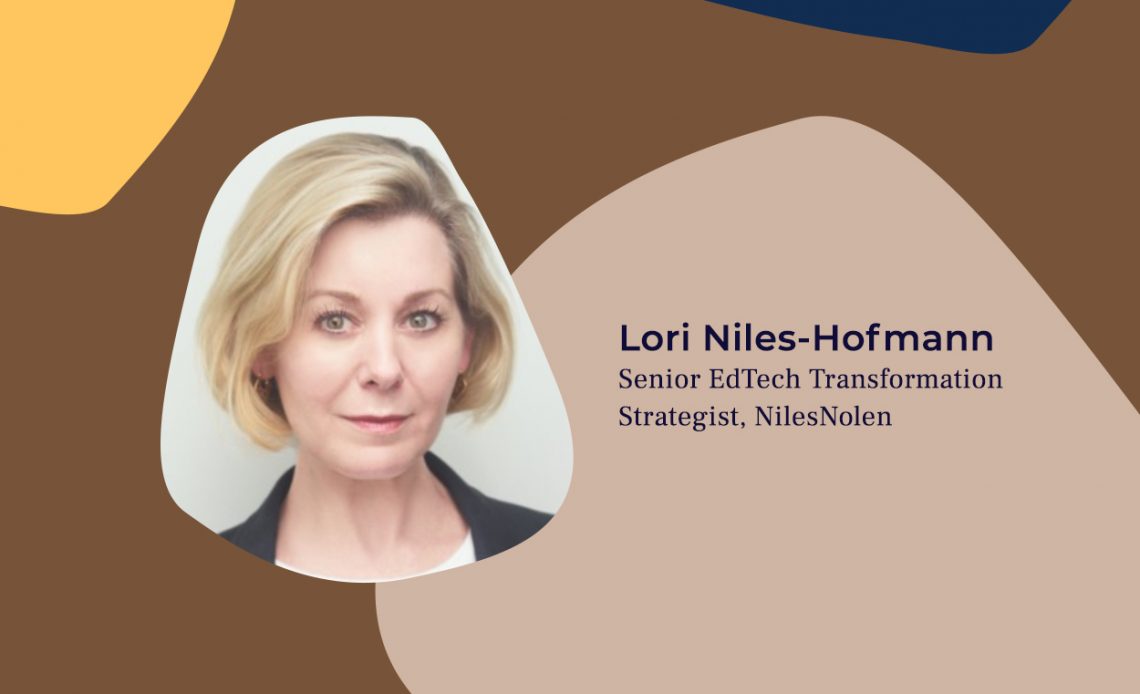
L&D data analytics has been trending in learning and development for a while but is needed now more than ever. How to start with it and how to do it effectively so that you can draw maximum impact from it? We sat down with Lori Niles-Hofmann from NilesNolen to talk it through.
HCM Deck: In a talk we had with Bartek Polakowski, he said that data analytics is an underestimated trend in L&D. We talk a lot about AI, RPA, etc., but it seems that data analytics remains an area we do not talk about enough. Do you agree?
Lori Niles-Hofmann: I completely agree. What it also comes down to is lack of skills in L&D. We like to see what vendors tell us is possible, but we ourselves do not typically have skills or resources within our own team to do the type of data analytics that would benefit us.
Likewise, politically, it does not always serve us well. I’m a big believer in using data analytics, however when I go to a stakeholder, they might not appreciate that. They have their own biases. Their own agendas. And being presented with data can really be a conflict. I think we need to move past that and we have to put the learner at the center of the experience and that’s going to require a big shift.
HCM Deck: Can L&D data analytics then be an even more important trend than AI, for example?
LNH: Absolutely. With the recession that we are heading into, if we’re not already in it, there is more pressure on L&D to demonstrate that they are adding value. I’m seeing a lot of redundancies and that’s coming down to business leaders looking at where they can save money when they are not getting ROI. L&D seems to be one of the easiest ones to cut, because they are not typically good at the data. It’s very soft and that’s a dangerous place to be.
Data being used to help ensure that we have the right skills at the right time. And we are keeping people employed. That’s what a good L&D department should be doing. If we are not doing that we can simply lose our jobs and we are not adding value for this person at the other end.
Effective analytics that will support your L&D programme. See what HCM Deck can do for your organization.
Let's talk
HCM Deck: What would you advise an organisation that wants to start with L&D data analytics, but does not know how?
LNH: Start with what you have. That’s what I always say. People try to tackle the mountain, but that’s not the way to go.
Go to IT, that’s your first place, because they track a lot of data. They will be able to tell you all the basics. Talk to them about search terms, are people using mobile vs. laptop, what time of day are they active. You can get a whole bunch of statistics as well from communication tools or GSuite. Start with that data. Don’t make it complicated for yourself.
Look to your LMS. Depending on how sophisticated it is, it might not have really meaningful data other than completions. See what you can get from there.
Also – go to HR analytics. L&D and HR tend to stay very separated, but HR will be able to tell you what jobs they are hiring for, where they have gaps, what is their succession planning. L&D should know that data.
You may also download a free toolkit from my blog that will detail data that you just can begin with. To summarize – make it easy on yourself. Just start with what you have.
HCM Deck: What is the most redundant L&D indicator that is commonly measured?
LNH: Completions.
Completion does not necessarily mean that somebody acquired the knowledge. It means they clicked ‘Next’.
HCM Deck: What’s the biggest impact L&D data analytics can have on an organization?
LNH: If you do L&D and data analytics properly, what you’re going to do is have a workforce that is future-proof. What I mean by that is that you’ll be able to manage skills like supply chain management. You will know, in advance, what skills are needed, how many people you have that have those skills and how many people to train to close that gap.
If you do it really well, your organisation is going to be in a much better position against the competitors. You’re not going to be relying on paying recruiters and hunting for people that cause delays. You’ll be able to back those skills. You’re going to be a really well-oiled machine. That, I think, is the most important.
HCM Deck: What’s the most impactful use of L&D data that you’ve seen in your professional experience?
LNH: The most impactful use is when you bring data analytics to the performance consulting conversation. And you do that in advance rather than having a stakeholder come to you and say ‘I need this’ and you trying to have that discussion with them which can almost become an argument over why you really need it.
You are the one who should be coming in with that evidence of need or no evidence of need. You may need to disprove it. I think that’s where it gets to be really powerful. As I said before this can cause some conflict and sometimes stakeholders do not want this. But that is the most important way that I think will really ensure we’re doing the right things for our learners. We’re not just satisfying egos of senior stakeholders.
HCM Deck: What’s the most important in the evaluation of the effectiveness of training?
LNH: To evaluate training effectiveness you actually have to start earlier at the beginning. As I said, before you produce anything, you have to identify what is the evidence of need. What tells you that there is a gap. If you can’t answer that question then you (probably) don’t need training. If you start from that point it gets easy to evaluate if the training was efficient and effective., as you’ll be able to measure against that metric directly.
It’s tricky to do because sometimes external forces can impact. That’s why learning should never be operating on its own. You have to make sure that the infrastructure is in there. So start with that evidence of need and then its so easy to manage backwards.
***

Lori Niles-Hofmann is a Senior Learning Strategist with over 20 years of L&D experience across many industries, including international banking (Scotiabank, RBC Dexia, BMO), management consulting (KPMG), and marketing (Eloqua). Her specialization is large-scale digital learning transformations and helping companies use data to navigate through the ambiguity of change.

